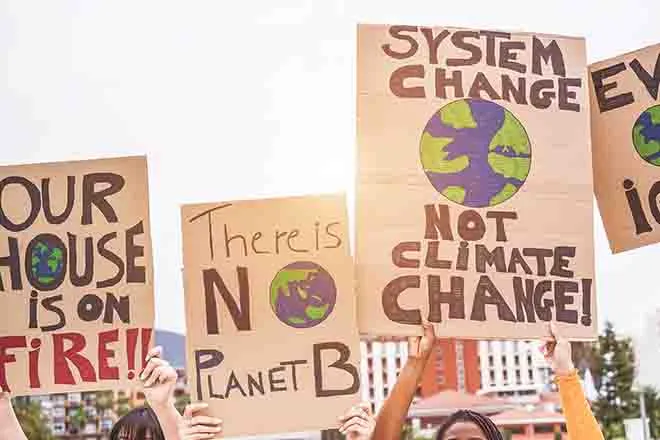
Daily Audio Newscast - November 24, 2025
© AlexLMX - iStock-823000260
Six minutes of news from around the nation.
Low-income taxpayers lose key tool after Trump administration ends free direct filing; Watchdog says "political insider" behavior a factor in health coverage premium spikes; and Braver Angels renews calls for civil chats over Thanksgiving.
TRANSCRIPT
Public News Service daily newscast for Monday, November 24th, 2025.
I'm Mike Moen.
Top US and Ukrainian officials said Sunday they've made progress toward ending the Russia-Ukraine war, but provided scant details.
That according to the Associated Press.
These developments come on the heels of the latest US proposal to achieve peace.
That plan has sparked concerns among many of Washington's European allies that the plan gives up too much to Moscow.
Meanwhile, U.S. Secretary of State Marco Rubio downplayed a Thursday deadline set by President Trump for Ukraine to respond to the plan, saying simply that officials want to see fighting stop as soon as possible, and that negotiating could continue early this week.
He said that higher-level officials may eventually have to get involved.
In other news, Wisconsin taxpayers could stand to lose out on about $145 million in unclaimed tax credits annually now that the Trump administration has ended a free government tax filing program created to help low-income and working families simplify tax filing.
Judith Ruiz Branch reports.
A new analysis from the nonprofit Economic Security Project estimates the IRS Direct File program would have saved Wisconsinites nearly $340 million annually in filing fees, time, and unclaimed tax credits.
Adam Rubin with the nonprofit explains the program was created under the Biden administration for low-income working and middle-class people with income thresholds under $150,000.
He says Direct File helped put earned money back in their pockets as about one in five people miss out on tax credits that they are eligible for.
They can be complicated and expensive to claim, especially if English is not your first language and the average taxpayer spends $160 in nine hours filling out their tax return.
That's just prohibitive for a lot of low-income families.
Up to 30 million people qualified for Direct File in 2025 and 300,000 taxpayers used it.
The acting IRS commissioner says the program wasn't utilized enough and that private companies could do a better job.
I'm Judith Ruiz Branch reporting.
Concerned Iowa residents gathered in Des Moines recently to call for safer drinking water.
The state is home to as many as 4,000 concentrated animal feeding operations.
Iowa's rivers and lakes are routinely closed to recreation as a result of high nitrate and phosphorus levels.
Food and Water Watch Iowa senior organizer, Mikaela Mankle, says during a town hall gathering, residents asked state lawmakers to continue funding for the state's water quality monitoring network of 500 sensors that report waterway pollution in real time.
There has been a move by the legislature to defund this program and push us back into the dark at a time where the crisis has never been more severe and when rates of pollution are skyrocketing.
Researchers are investigating the link between water pollution and Iowa's cancer rate, which has the second highest occurrence of new cases in the nation.
This is Public News Service.
As residents in states like Michigan learn just how much their health insurance costs will go up next year, at least one group blames corruption in the nation's capital for at least some of the price hikes.
More from Crystal Blair.
In Michigan, premiums for health insurance through the Affordable Care Act are set to rise sharply next year, with rates jumping 24 percent for Blue Cross policies, 23 percent for Blue Care Network plans, and nearly 20 percent for priority health plans.
One watchdog organization sees the recent government shutdown as the latest example of what it calls the cost of corruption.
Brian Lemick with the group Defend the Vote argues that political dysfunction means no one in Congress is making headway on the issue of healthcare affordability.
Instead of making laws, they closed the government.
And so when they close the government, they limit the ability to make sure families have affordable healthcare, to make sure SNAP benefits are available.
They're doing this to protect billionaire donors and corporate lobbyists.
Lemick says the instability could worsen before the next shutdown deadline in January.
However, supporters of the Trump budget plan argue it was designed to rein in federal spending and support long-term economic growth.
They also say rising healthcare costs are driven by market pressures not congressional in action.
Crystal Blair reporting.
Turning to higher education, a new study finds college financial aid in California fails to target the students considered dually disadvantaged, those from families that are both low income and low wealth.
These families have low annual incomes and have few assets such as college savings accounts, investments, or real estate, a type of wealth often passed down through generations.
Report co-author Laura Hamilton is a professor of sociology who says students who are dually disadvantaged end up borrowing a lot more money for their education.
Relative to their peers who are just low income, dually disadvantaged students get about the same amount of aid but they have a lot more need.
The study found that only 52 percent of dually disadvantaged students are predicted to attend college compared to 83 percent of students from low income, high wealth families.
And finally, civil conversations are encouraged this week as people gather with their families for Thanksgiving.
One group that's focused on bridging the political divide is Braver Angels.
Damian Prynance is co-chair of the organization's Idaho State Alliance.
He suggests people who are struggling to speak with family members of different political views engage in the lap technique, listening, acknowledging, pivoting, and offering your perspective.
After you've given what we call a turning signal, the change in the conversation, then you provide your perspective, which kind of makes it a little bit smoother of a conversation process.
Prynance says Braver Angels skills for having intelligent and vulnerable conversations while still maintaining relationships with people whom we disagree, which can be especially challenging among family members over the Thanksgiving holiday.
This is Mike Moen for Public News Service.
Member and listener supported.
Find our trust indicators at publicnewsservice.org.

















